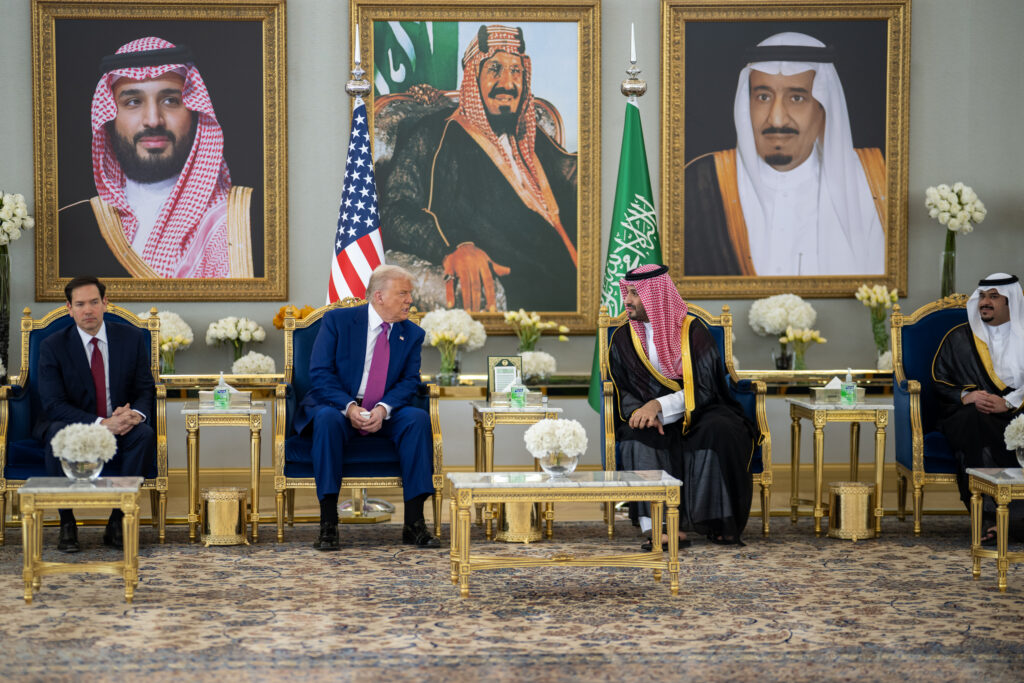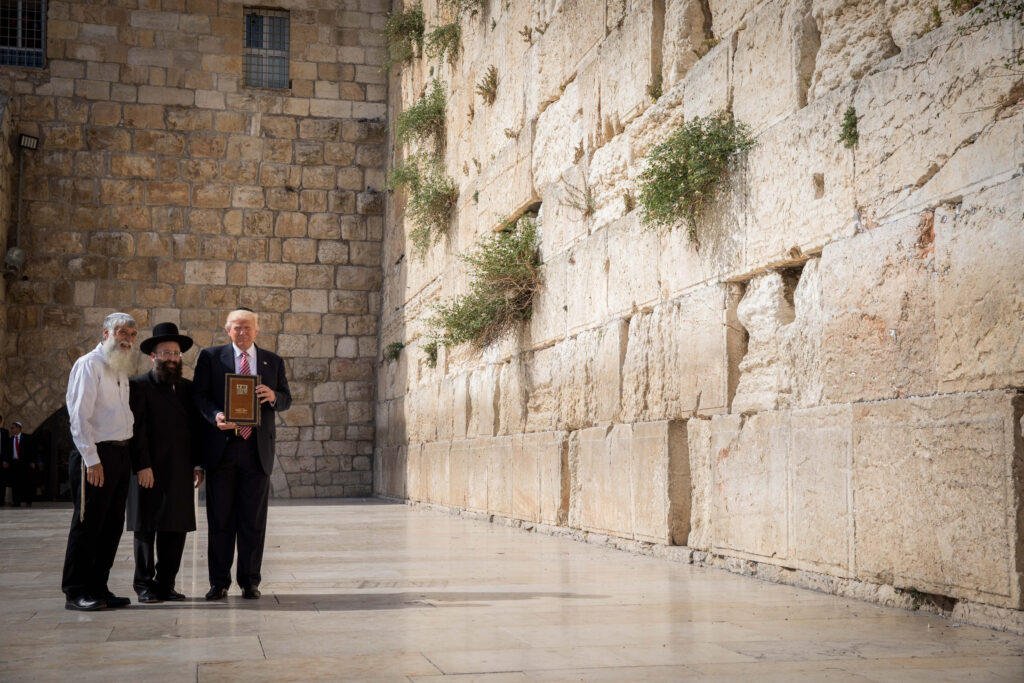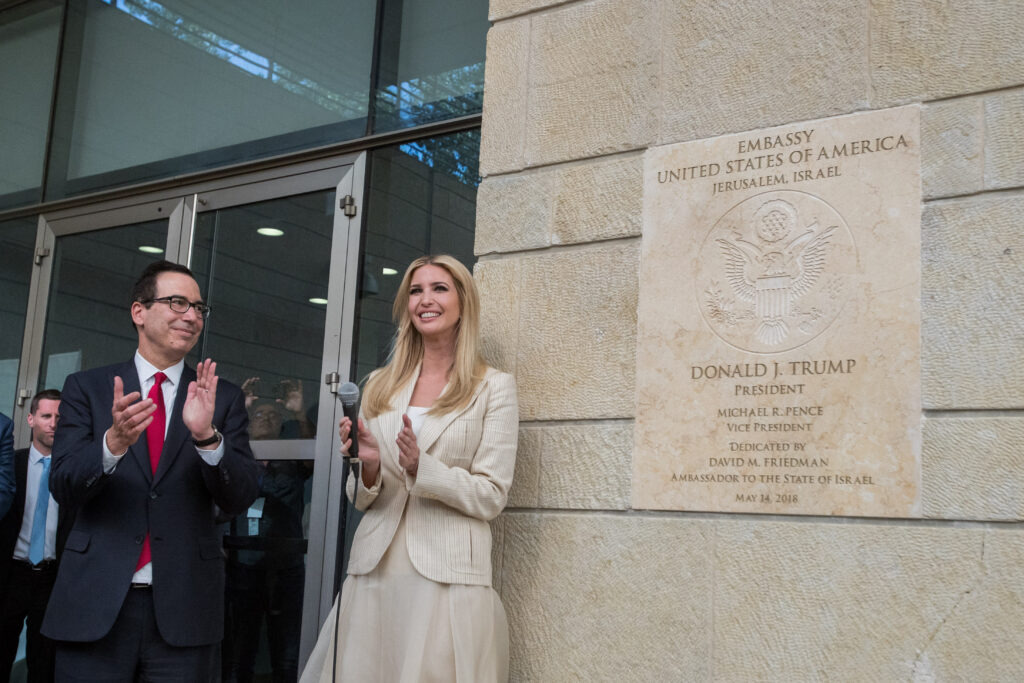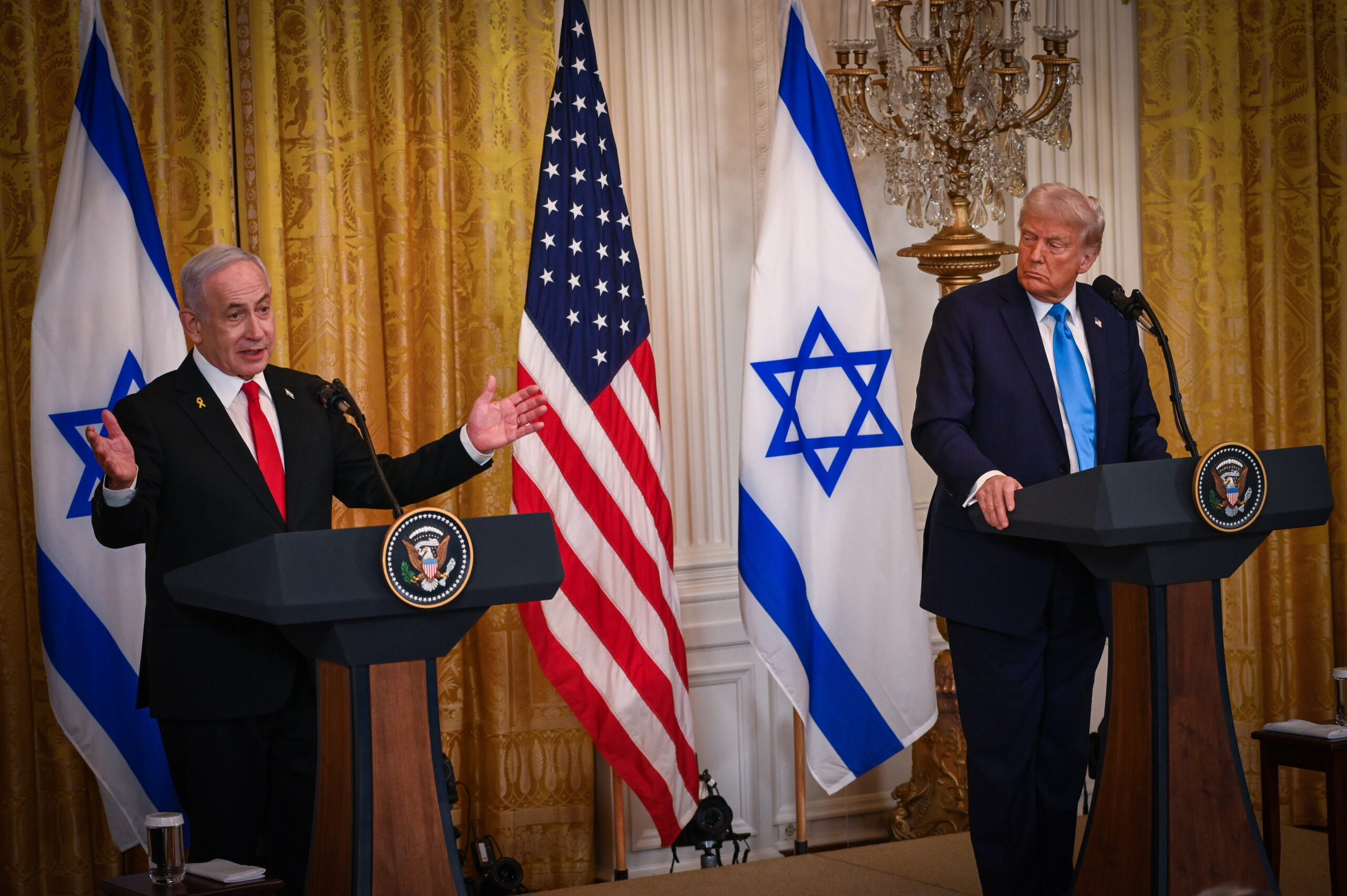What the headlines won’t tell you about Trump’s pro-Israel record — and why the real story is the opposite of what you’ve been told.
By Nosson Shulman: Licensed Tour Guide of VIP Israel Tours & Authentic Virtual Tours (click here to check out his free trailer videos)
Let’s begin with a disclaimer: this article does not endorse any political candidates. It is a factual look at former President Donald Trump’s Middle East policy, especially as it relates to Israel. If just hearing the name “Trump” triggers a strong emotional reaction, this article may not be for you. But if you’re open to facts over headlines, keep reading.
Despite a historic record of pro-Israel policies, the media continues to push narratives suggesting that Trump is shifting away from Israel or cozying up to its enemies. These claims are often based on speculation, cherry-picked quotes, or outright distortion. And as with many headlines about Trump since 2016, they will likely turn out to be false too.
Here are the Top 5 Myths being circulated — and why none of them hold up under actual scrutiny.
1. “Trump Has Become Anti-Israel and Isn’t the Same as First-Term Trump”

This myth collapses the moment you examine Trump’s actual policy moves.
Since returning to the political scene, Trump has reaffirmed his support for Israel at nearly every turn. He lifted Biden-era sanctions on Jewish settlers, reversed the arms embargo, and appointed what many call the most pro-Israel cabinet in U.S. history. Key figures include:
- Mike Huckabee as U.S. Ambassador to Israel, a longtime advocate for Israel who believes that all of Israel biblically belongs to the Jewish people.
- Marco Rubio as Secretary of State, one of the Senate’s strongest voices for Israel and a vocal opponent of Iran’s terror regime.
- Pete Hegseth as Secretary of Defense, who has openly supported the rebuilding of the Jewish Holy Temple in Jerusalem.
On top of that, Trump gave Prime Minister Netanyahu royal treatment during his recent White House visit, showing the world that the U.S.-Israel relationship under his leadership is stronger than ever. The idea that Trump is somehow distancing himself from Israel is not supported by a single policy action.
2. “Trump Has Been Taken in by the Qataris – Terrorists in Suits”
This accusation ignores strategy and oversimplifies diplomacy.
Yes, Trump visited Qatar recently — and the media immediately jumped to conclusions. But here’s what they left out: Qatar hosts one of the most important U.S. military bases in the Middle East. Trump has long insisted that the U.S. should not fund the defense of foreign nations without return.

The result? Trump reportedly secured a new Air Force One, paid for in part by Qatar, relieving American taxpayers. Even more remarkable, he leveraged that relationship to secure the release of an active-duty IDF soldier — without prisoner swaps, concessions, or payments. That is virtually unprecedented in Israeli history (remember Gilat Shalit was released for 1027 terrorists, 280 of whom were serving life sentences, many of whom would later mastermind October 7).
It’s important to understand a key reality: Qatar is a major player in the Middle East, whether we like it or not. They also hold the strings to Hamas — and Trump has used that leverage to achieve meaningful outcomes for Israel. This isn’t being “taken in” — it’s strategic engagement with eyes wide open, using influence to achieve results others only talk about.
Another major reason for Trump’s trip to Qatar and Saudi Arabia was to close business deals for the U.S. Saudi Arabia has already agreed to invest $600 billion in the U.S., a deal that has the potential to create up to 2 million American jobs. As President, Trump sees job creation and economic growth as top responsibilities — and while pursuing these gains, he continues to keep an eye on these nations to ensure they aren’t engaging in nefarious or terror-related activity.
At the same time, Trump continues to crack down on Qatari influence in American universities, especially in Middle Eastern studies departments. That same week, his administration cut $400 million in federal funds from Harvard over antisemitism and foreign influence concerns.
This is not naïveté. It’s calculated diplomacy — and it’s working.
3. “Trump Not Visiting Israel Means He Doesn’t Care”
This claim is nothing more than speculation dressed as reporting.
The media took one fact — Trump’s decision not to stop in Israel during his Middle East tour — and ran wild with it. But this is nothing more than pure speculation from a press corps desperate for a rift. Trump has not criticized Israel. He’s not distanced himself from its government. In fact, both Netanyahu’s cabinet and Trump’s own team have said there is “no daylight” between the U.S. and Israel right now (if the media has evidence to the contrary, I would love to see it).

So why didn’t he stop in Israel? Security, timing, strategic reasons — we don’t know. But not knowing doesn’t give the media the right to create their own story. And if you actually listened to his full speech in Saudi Arabia, rather than cherry-picked headlines, you’d hear just how deeply Pro-Israel he is. The reality is, Trump’s actions — not a brief travel itinerary — are what matter. And those actions speak volumes.
4. “Trump Is Willing to Talk to Iran – That Means He Doesn’t Get It”
Quite the opposite. Trump gets it — and that’s exactly why he’s dangerous to Iran.
Yes, he’s said he’s open to negotiation — but only from a position of maximum pressure. He scrapped the disastrous 2015 Iran nuclear deal, reimposed harsh sanctions, and took out Qassem Soleimani, Iran’s top terror operative. His goal? A deal that works for Israel, the U.S., and peace — or no deal at all.
Trump’s broader strategy includes isolating Iran by supporting regimes that oppose Tehran. That includes a new leadership structure in Syria that is hostile to Iran — a major blow to Hezbollah, the IRGC, and other Iranian terror proxies. Trump recognizes this new Syrian regime as a tool to weaken Iranian influence on Israel’s border.
He’s strengthening Israel’s neighborhood, not weakening it.
Quite the opposite. Trump gets it — and that’s exactly why he’s dangerous to Iran.
5. “Trump’s Syria Policy Means He’s Rewarding Terrorists”
That couldn’t be further from the truth.
Trump’s engagement with Syria is highly conditional and strategic. The goal is to encourage a post-Assad Syria to normalize ties with Israel and end support for terror — in exchange for carefully phased, limited sanctions relief. And it’s important to note: Trump always builds enforcement into his diplomacy. If commitments are broken, so are the benefits.
This strategy is not about rewarding terror — it’s about creating geopolitical distance between Syria and Iran, and giving Israel a safer, more stable northern border. It’s diplomacy with sharp teeth — not blind trust.
The Bigger Picture: A Pro-Israel Record Like No Other
Here’s what the media won’t summarize for you:
- Moved the U.S. Embassy to Jerusalem.
- Recognized Israeli sovereignty over the Golan Heights.
- Defunded UNRWA and UNESCO.
- Cancelled 4,000+ student visas for those hostile to Jews, Israel, or America.
- Merged the Palestinian Affairs office into the U.S. Embassy in Jerusalem, placing it under Ambassador Mike Huckabee, who believes in Israel’s full Biblical claim.
- Never criticized Israeli settlements.
- Bombed the Houthis and reimposed sanctions Biden had lifted.
- Cut $400 million from Harvard for antisemitism — the same day he met Qatar.
- Actively targeting foreign (Qatari) funding in American campuses.
- Allowed Israel freedom of action in Lebanon and elsewhere — no public second-guessing.
- Floated relocating Gazans to other Arab nations to reduce long-term conflict.

This isn’t a shift away from Israel. It’s a deepening of a partnership — one backed by policy, not PR.
Conclusion: What the Media Says vs. What Trump Does
The myths being peddled by the media are often based on surface-level assumptions and wishful thinking. Trump’s actual record in the Middle East — especially with Israel — tells a very different story.
One built on historic moves, strategic alliances, and unwavering support.
And once again, just like in 2016, 2018, and 2020… what the media is saying now will most likely turn out to be false too.
Update:
Since this article was first published, a series of major—and once unthinkable—developments have unfolded. In a historic move, President Trump met with Syrian President Ahmad al-Sharaa. Soon after, top officials from Sharaa’s regime held talks with Israeli military leaders, including Maj. Gen. Oded Basyuk of the IDF Operations Directorate, about the possibility of Syria joining the Abraham Accords—the peace agreements Trump originally brokered between Israel and four Arab nations.
Even more surprising, Syria is reportedly softening its long-standing demand that Israel relinquish the Golan Heights, a major sticking point in past negotiations.
Meanwhile, following Trump’s meeting with the UAE, the country’s Foreign Minister made a bold statement: the first step toward peace in Gaza is freeing the Israeli hostages. This clear prioritization of Israeli hostages over broader Palestinian issues is a striking and unprecedented stance in the Arab world.
Nosson Shulman is a journalist and Licensed Tour Guide in Israel specializing in Biblical tours. To allow tourists to experience Israel during the Corona era, he created the new hit Israel tour video series which brings Israel to the home of viewers by simulating actual tours. To check out his free sneak preview tour videos, click here. To view sample tour itineraries or to inquire about private tour opportunities with a personalized itinerary on your next trip to Israel, click here.





